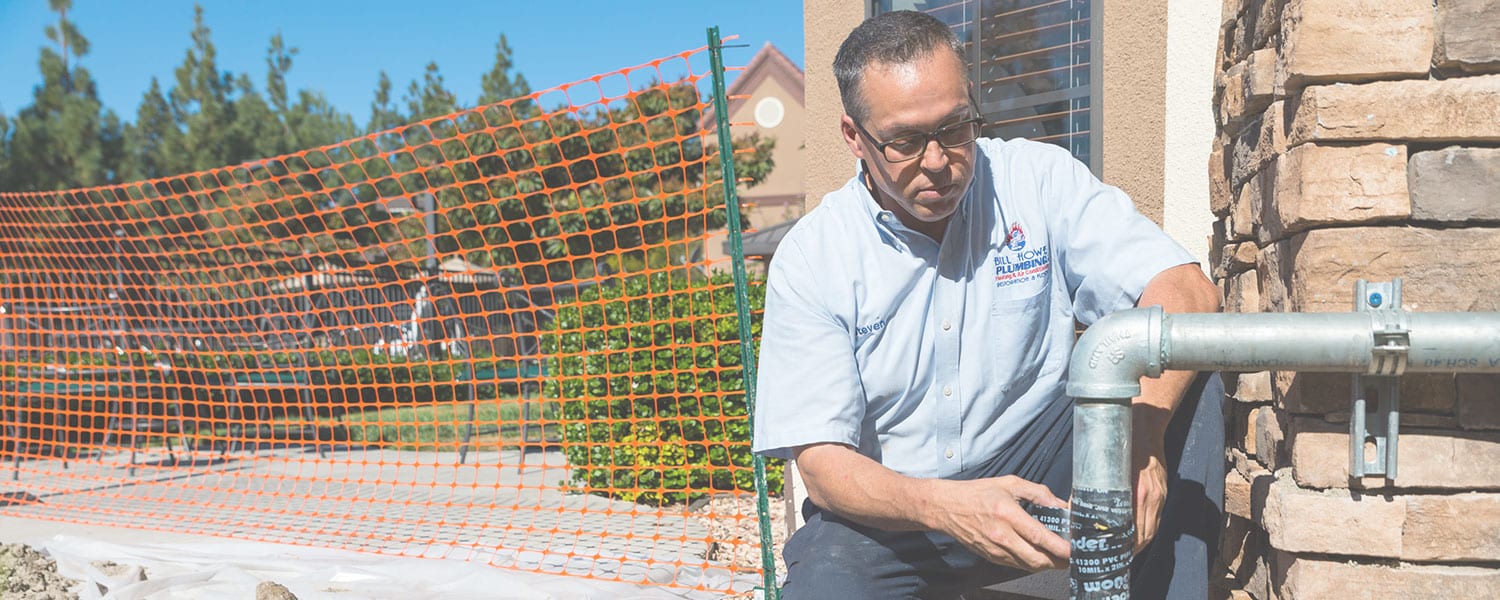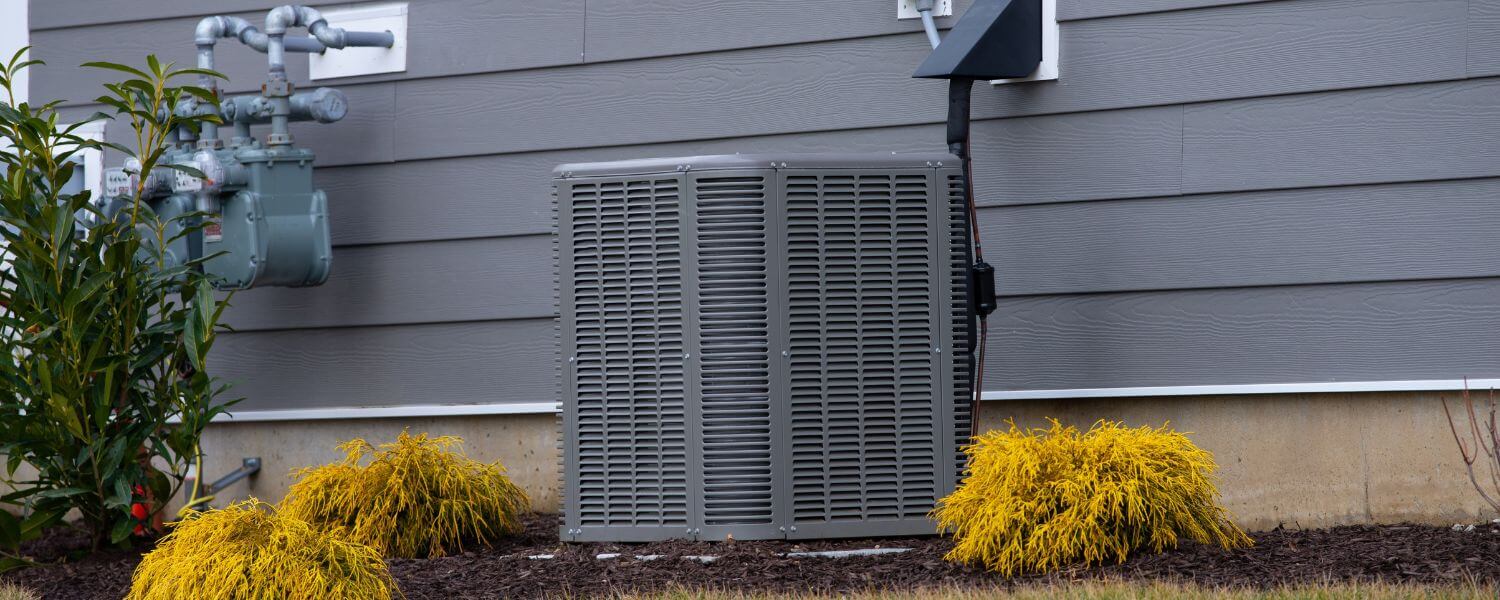One of the perks of having an air conditioner is enjoying a perfectly climate-controlled home, especially during the dog days of summer. But when you wake up in a pool of sweat wondering, “Why is my AC blowing hot air,” something is clearly amiss with your air conditioner.
Fortunately, Bill Howe can help. Before you panic, take a cold shower and let’s discuss why your AC may blow hot air instead of cooling your home and how to prevent it from becoming a common problem.
Common Causes of an AC Blowing Hot Air
An AC blowing hot air in the summer is never fun to deal with. Finding the answer is a process of elimination. There could be electrical problems, compressor problems, clogging issues, and more. The following are some of the top reasons your air conditioning system may have stopped cooling your home.
Thermostat Issues
Did you accidentally set the thermostat to supply warm rather than cool air? It happens, so make sure to double-check the thermostat settings. Many thermostats run on batteries, and when they’re dead, they won’t function. Of course, if all else fails, have a technician inspect your thermostat. It may be faulty and needs to be replaced.
Refrigerant Leaks
Look for hints of refrigerant leaks, such as your AC unit blowing hot air, high-pitched shrieking noises, and a higher-than-normal electric bill. Corrosion, clogged air filters, or improper installation can cause refrigerant leaks. If you suspect one, be sure to leave the repair work to a technician who knows what to look for and how to fix it right the first time.
Dirty Air Filters
Dirty filters can affect the performance of your AC, so it’s a good idea to replace them every 90 days. You can do this yourself. Just be sure to turn the AC unit off first. Then, open the vent, remove the old filter, install a new one, and close the vent!
Blocked or Dirty Condenser Coils
The condenser coils release the indoor heat they’ve absorbed. If your air conditioner is blowing hot air or your home smells musty, the coils may be dirty. Fortunately, they can be cleaned with a solution of water and mild household detergent.
Electrical Issues
Tripped circuit breakers can cause your AC unit to quit working, so be sure to open and look inside the circuit box. Faulty wiring can also lead to electrical issues, especially if the AC was installed incorrectly. Lastly, when it comes to electrical problems, stay safe and leave the hazardous electrical work to a professional technician.
Compressor Problems
The compressor plays a significant role in the cooling cycle—it compresses and pumps refrigerant so that your home is cool and comfy. Debris buildup leads to dirty coils, and if the compressor is no longer turning on, it’s a tell-tale sign that it needs repair or replacement. Call a professional. If the repair costs are minimal, have it repaired.
Clogged Drain Lines
The drain lines in an AC system are essential. After all, the drain lines remove all the condensation created during the cooling process. However, the lines can get clogged. The drains may be clogged if you notice water puddles, mold, or musty smells or if the air conditioner is blowing hot air. You can clear the drain line yourself by using a shop vacuum to remove blockages and then using a hose to flush it out. However, the best and easiest way to clear clogged drain lines is to call a professional.
Ductwork Issues
Another reason why your AC is blowing hot air could be leaks or disconnections in the ductwork. Poor insulation is another leading cause. Have the ductwork inspected by a professional. A certified technician knows what to look for and will fix it if ductwork repair or replacement is required.
DIY Troubleshooting Tips
Look out for telltale signs, like refrigerant leaks, and ensure the thermostat is in the right setting. You should also keep the area around the AC unit clear and free of debris. Changing the air filters is another simple remedy you can do to keep the cold air flowing freely. Of course, an HVAC unit is delicate and complex, so if you’re tired of scratching your head and asking, “Why is my AC blowing hot air in my house?” Call an expert!
The Importance of Professional HVAC Services
Let’s face it. Fixing AC issues is often a job best left to an experienced and certified expert who can diagnose and resolve problems quickly. A trusted professional can help keep you safe from working around electrical hazards, too. And with proper maintenance and repairs from Bill Howe, you can rest assured that your AC will keep your home comfortable for years to come.
Why Choose Our Services
From emergency plumbing to providing valuable tips, Bill Howe is proud to be here for our customers. Here’s why you should call Bill Howe for expert HVAC services:
- We take pride in providing experienced, certified technicians who want the best for your home and family.
- We’ve been trusted in San Diego since 1980 and have thousands of positive reviews to prove it.
- Bill Howe’s commitment to quality service and customer satisfaction is second to none!
- We offer warranties on work performed.
- Ask us about our special offers and maintenance plans that can save you money.
- Have an HVAC or plumbing emergency? Bill Howe’s certified experts are on standby, 24/7!
Preventive Maintenance Tips
One of the best ways to get the most from your HVAC system is by scheduling maintenance twice a year. A professional inspection can spot problems early, which can help save you money. Of course, you can do your part or hire an expert to extend the life of your AC unit by changing the filters, cleaning the units, insulating the ductwork, and scheduling regular maintenance.
Get Back to Enjoying a Cool, Clean, and Comfortable Home
For expert AC repair and maintenance services you can rely on, call the experts at Bill Howe. We know Howe!
Book Now!




